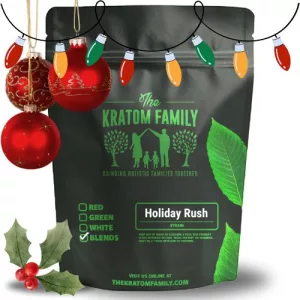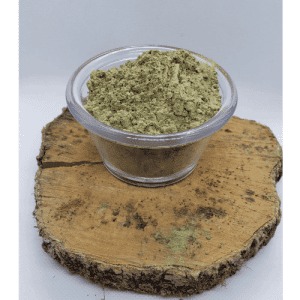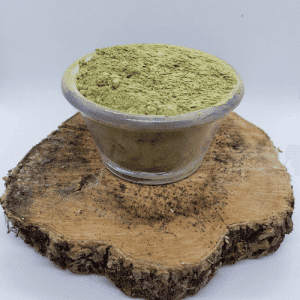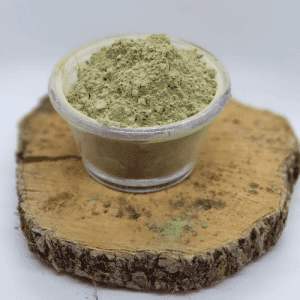Kratom advocacy is a strategy that we, as kratom consumers, can use to bring better information to people who do not know about kratom. We believe kratom advocacy is important because it helps keep kratom legal. We already know that the mainstream media tends to focus on the bad aspects of kratom powder. While some great reports focus on the positives of Kratom, we need to ensure that the idea and uses of Kratom aren’t tainted by forces who have an underlying agenda against this plant.
It is with this idea that the Kratom advocate is born, and a generation of people rise to meet the challenge to bring facts to people who may be otherwise influenced by “fake news” from other media outlets.
Kratom is a plant that has been used for thousands of years in Southeast Asia, especially Thailand and Malaysia. It was banned in Thailand in 1943 because kratom users did not want to be drafted into the government’s workforce. Kratom was banned for many years but kratom advocates are working hard to get kratom off of the DEA’s hot list as well. Here are some important aspects and facts you can use to direct better knowledge of the kratom plant to the people around you.
The 8-Factor Analysis Test
Dr. Jack Henningfield, a kratom researcher for Pinney Associates, performed an 8-factor analysis test to determine kratom’s risk. The kratom 8-factor analysis test revealed that kratom should be taken off of the DEA’s hot list because kratom has very low abuse potential.
Kratom has been found to have roughly the same potential for abuse as caffeine, which means kratom does not pose a threat to public safety when used responsibly. This simply means that if you’re someone who likes to wake up every morning and can’t talk to anyone before you’ve had your coffee, then you can relate to a Kratom tea drinker as well.
The John’s Hopkins Research
Johns Hopkins kratom researchers have also found kratom to be safe for human consumption. They found kratom to be fundamentally different than other chemical dependencies (can’t say that word here) in how kratom works. Kratom does not attach itself to mu-opioid receptors in the brain, however, kratom attaches to kappa-opioid receptors which are more similar to caffeine’s action on the body. This means kratom has stimulant-like effects when kratom binds to the kappa-opioid receptor in the brain.
The kratom 8-factor analysis risk score and Johns Hopkins kratom research both indicate that kratom does not have high abuse potential and this is why advocates feel kratom should be taken off of the DEA’s list; as kratom is relatively safe and represents a low risk for public safety.
The Scientists
In July 2018, kratom researchers wrote a letter to Congress that was signed by kratom scientists and kratom advocates. The kratom scientists who wrote the letter have done kratom research for years and have found kratom to be an effective herbal supplement in comparison with prescription medications to stop the kratom ban and change the mind of various lawmakers who are charging full steam to keep this plant away from people who drink Kratom tea responsibly.
The kratom scientists who wrote the letter advise Congress not to add kratom to the DEA’s list because kratom is “not an opioid and does not share any of opium or opioids’ characteristics when used responsibly”. The scientists also wanted members of congress to know kratom does not cause harm when used responsibly.
Dr. Jane Babin and Her Report
Dr. Jane Babin is a kratom advocate who has prepared reports about kratom for kratom advocates to use when congressional testimony is being prepared. Dr. Jane Babin’s report was released and it points out that the FDA did not follow the science when they decided kratom should be put on the DEA list.
Reports like this from professionals in their field bring Kratom advocates even more ammunition in our fight to keep Kratom legal in our state/country/city. Currently, there are still several cities/states that still have Kratom powder banned, but with professionals like Dr. Jane Babin, we can face the opposition headlong with the facts they are bringing.
The Response To CDC Report
The kratom CDC report has been a hot topic since the kratom scientists and advocates have responded to the CDC report against Kratom, which is viewed by kratom researchers as “propaganda” from Big Pharma. The Kratom scientist’s letter that was sent to congress, listed a study done in Sweden that showed how Kratom helped people quit harmful (insert habit here) by drinking Kratom tea.
Scientists are pointing out Kratom does not belong in Schedule I of the Controlled Substances Act because kratom does not have high abuse potential and kratom has low-risk factors when kratom is responsibly used. Kratom is a dietary supplement that can help people reduce their discomfort levels as well as bring about a better wellness option to their lives overall.
The Kratom Consumer Protection Act
The Kratom Consumer Protection Act (KCPA) was drafted by kratom advocates, kratom scientists, kratom industry leaders, kratom professionals, and kratom organization representatives. This is the model legislation that has been introduced in several states to stop the kratom ban and to continue kratom use for people who drink Kratom tea responsibly.
Kratom needs our advocacy help so kratom research can continue. The kratom consumer protection act is kratom supporters’ chance to stand up for kratom and do our part in protecting kratom the way it needs to be, which is why kratom advocates are needed, not just customers.
The American Kratom Association (AKA) kratom organization is a kratom advocacy group where kratom advocates can sign up to be a part of the kratom fight against the ban.
The KCPA is continually being instilled into your local and state governments to ensure that Good Manufacturing Practices are kept, therefore keeping our customers safe. The KCPA is an important piece of legislation that will keep Kratom legal because what the AKA is doing is showing our lawmakers that there is an organization out there that is holding vendors who offer Kratom products at a higher standard. In the end, it will offer a better outcome if this kind of “policing” is involved with a plant that so many government facets have deemed “dangerous”.
How To Be The Best Kratom Advocate
Keep yourself educated with kratom news and kratom advocacy tips that are being shared on important sites like AmericanKratom.org. You can use that kratom news to further educate yourself and also as kratom advocacy tips.
Study lawmakers approach to Kratom. Many people involved in kratom advocacy are trying to do their part by writing letters to lawmakers and this is a great idea when it comes to keeping your representative apprised of the current events surrounding the Kratom industry.
Keep up with kratom community discussions and share your kratom advocacy ideas. You can keep yourself in the loop by participating in kratom community discussions such as Reddit kratom forums or Facebook groups, which are great resources for kratom users to communicate with one another about this plant.
Keep track of changes in kratom legality; they occur daily. Even if the laws surrounding kratom change from day to day, advocates must remain vigilant since there are numerous kratom advocacy efforts taking place across the country.
In Conclusion
You can be an important part of kratom advocacy efforts just by keeping yourself educated and sharing that kratom information with your friends who drink kratom tea. Kratom advocates are needed to assist in scientific research, product safety testing, legislative monitoring, and industry oversight so this plant remains legal across the kratom industry.
The Kratom Consumer Protection Act is a kratom consumer’s chance to defend Kratom, as well as a way for us all to play our part in ensuring that Kratom is protected how it should be. Why do supporters of Kratom need to exist? They’re not only consumers; they’re also advocates. Kratom advocates must remain vigilant since there are numerous kratom advocacy efforts taking place across the country.
Kratom consumers need to know kratom advocacy tips, kratom advocacy ideas, kratom news, and kratom industry updates to keep kratom safe. It’s just one of the many reasons why kratom advocates are needed.






